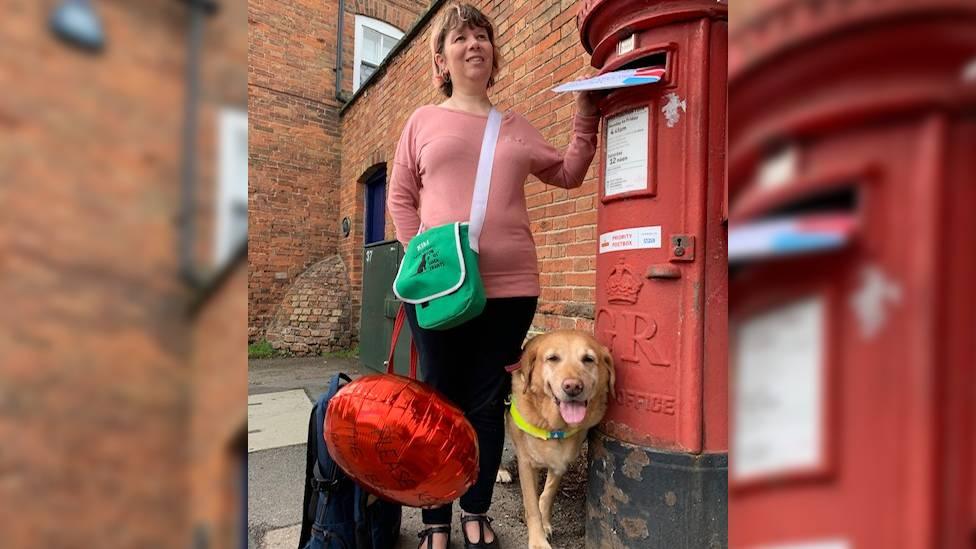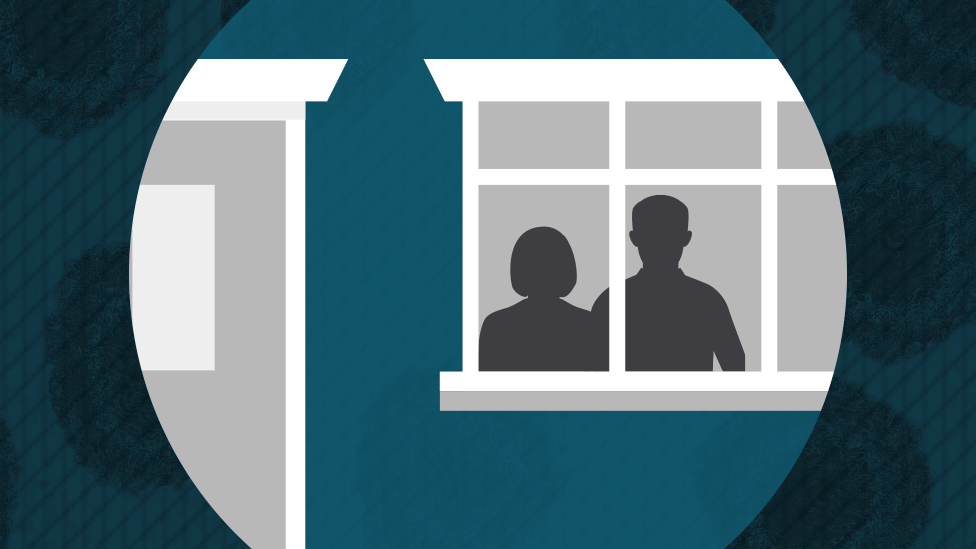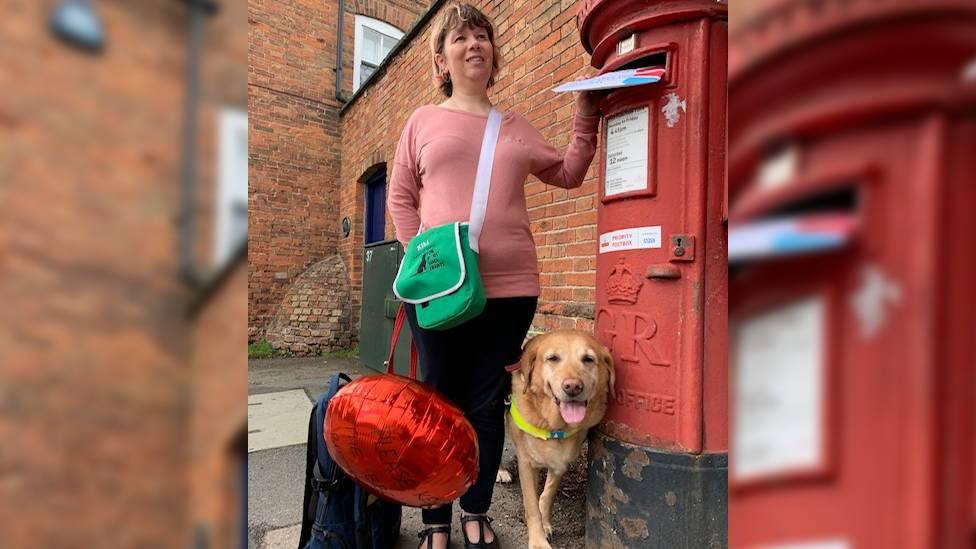Covid: Blind woman forces government action in shielding case
- Published

Sarah Leadbetter, who is registered blind, says she was not sent any information about shielding that she could access
A blind woman who was sent a shielding letter she could not read has won "promising" commitments from the government after a legal challenge.
Sarah Leadbetter, from Narborough in Leicestershire, is classed as clinically extremely vulnerable.
However government correspondence advising her to shield was not sent in a format she could access - which she argued was discrimination.
The government agreed to review its communication with disabled people.
'Promising step'
Ms Leadbetter, 45, who is registered blind, said she was "very proud" of the results of her legal challenge.
"This is a promising step," she said.
"It shows we are being listened to. Everyone should get important documents sent to them in the format they ask for."
She said she had repeatedly asked for information about her health to be emailed to her as she cannot use Braille and instead has technology that will read out electronic messages.
But she said this has always been denied and so when the shielding letter came through, her mother had to read it to her.
She added she is part of a social group of 19 people with the same condition as her, Bardet Biedl Syndrome, and only two had received the shielding information in a way they could access.
She said it made her feel less independent, denied her privacy and would not be an option for everyone.
The Royal National Institute of Blind People said they "regularly" heard of such cases and had been raising their concerns with the government "since the start of the pandemic".
Ms Leadbetter and her lawyers, Leigh Day, argued her human rights and government standards had been breached and were granted a judicial review in the High Court.
They were supported by the Equality and Human Rights Commission (EHRC).
Before it could get to court, the Department of Health and Social Care (DHSC) made a number of agreements.
These included reconsidering how it communicates with people who are shielding, investigating how it can keep a better record of preferences and bringing in any changes within four months.
A DHSC spokesperson said shielding letters were available in a variety of formats to make them accessible, and are sent electronically when someone has an email registered with their GP.
They added: "The government has supported disabled people throughout this pandemic and we continue to assess what further support can be offered, including options for providing accessible shielding information to patients directly."

COVID VACCINE: When can you get it?
NEW VARIANTS: How worrying are they?
FACE MASKS: When do I need to wear one?
TESTING: How do I get a virus test?
GLOBAL TRACKER: Where are the virus hotspots?


Follow BBC East Midlands on Facebook, external, Twitter, external, or Instagram, external. Send your story ideas to eastmidsnews@bbc.co.uk, external.
Related topics
- Published13 July 2021

- Published3 February 2021

- Published23 December 2020
